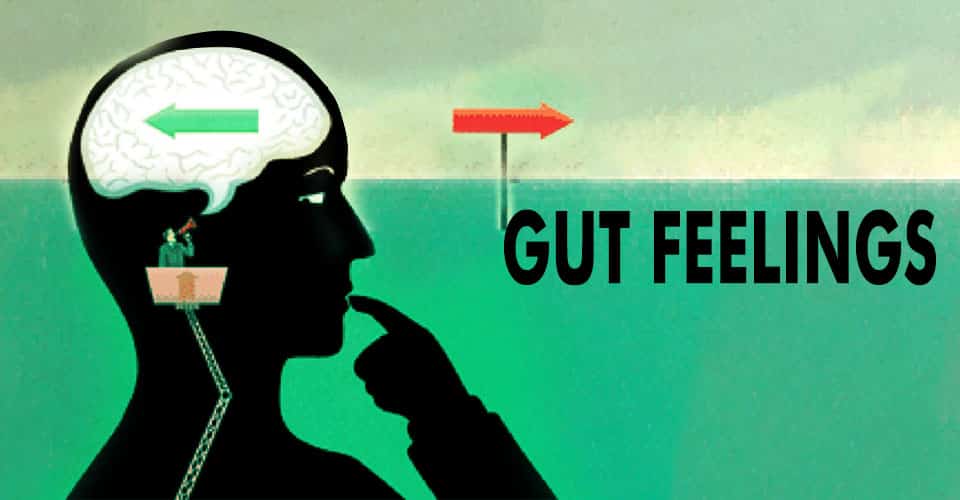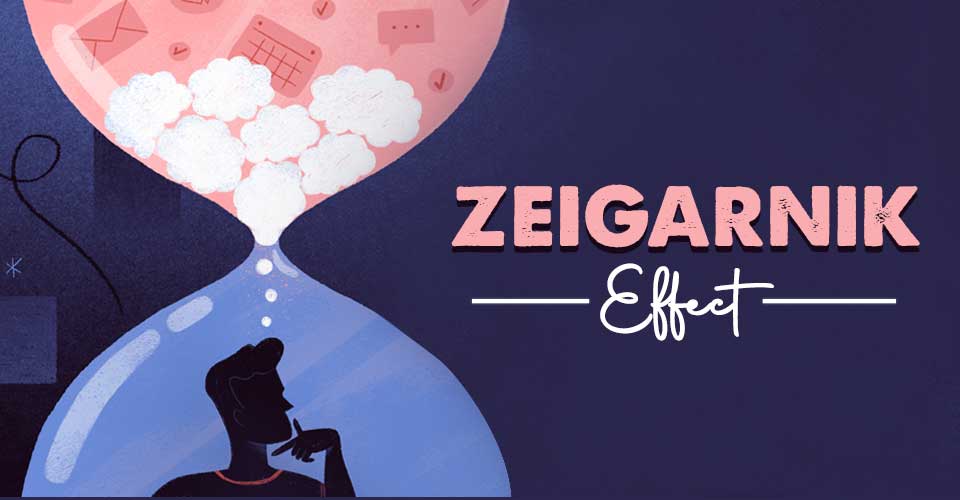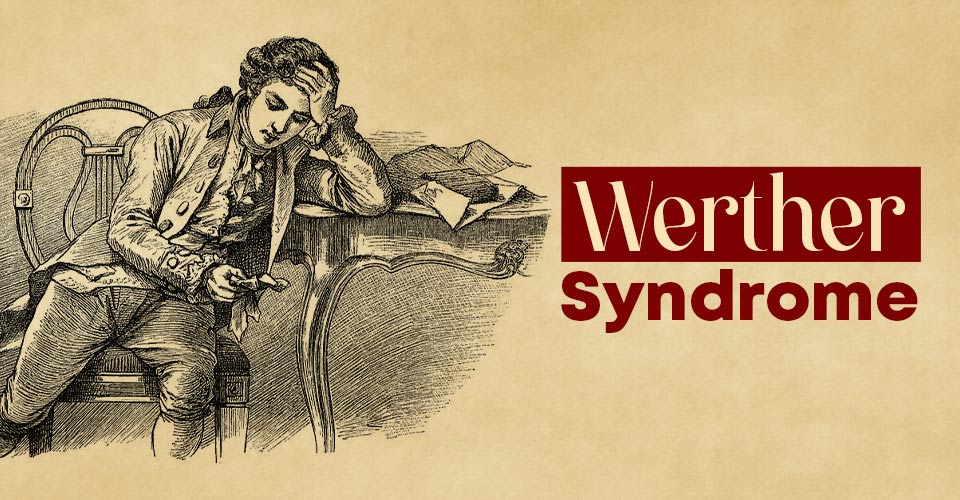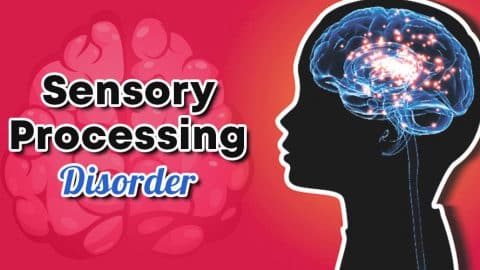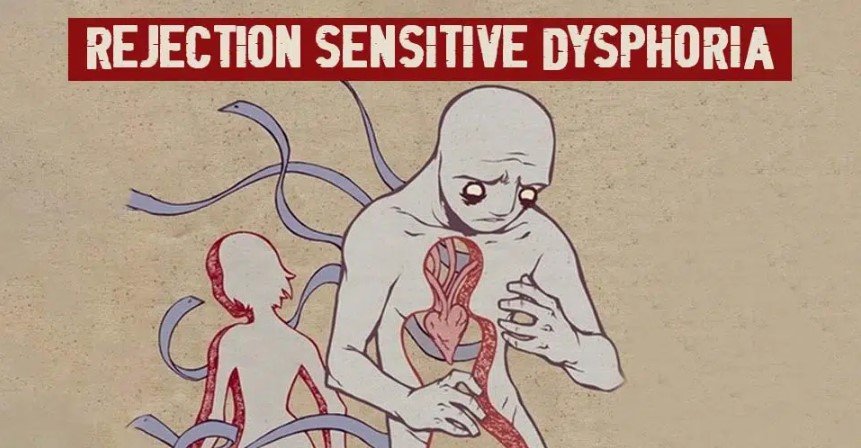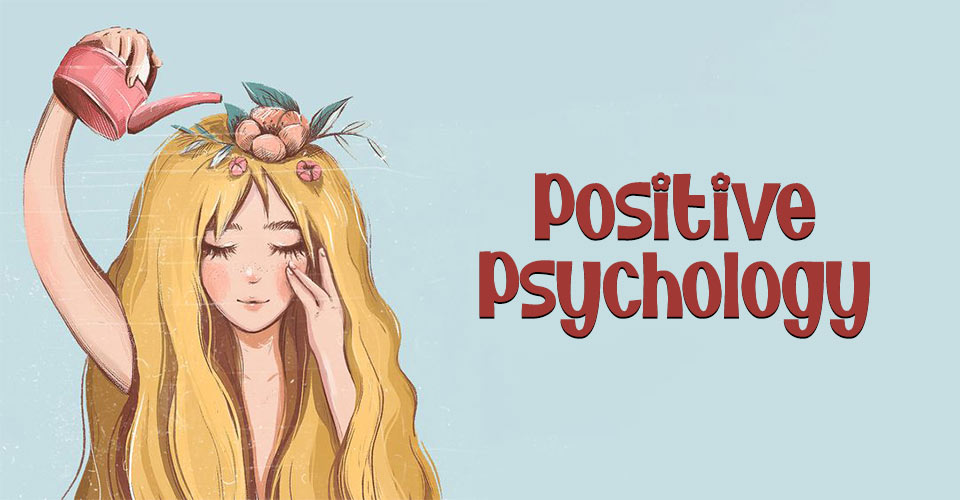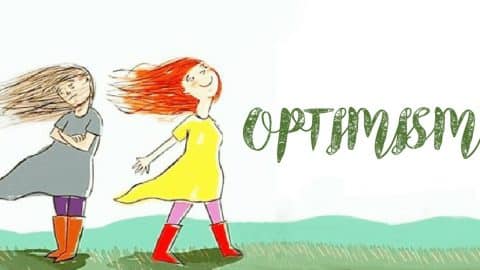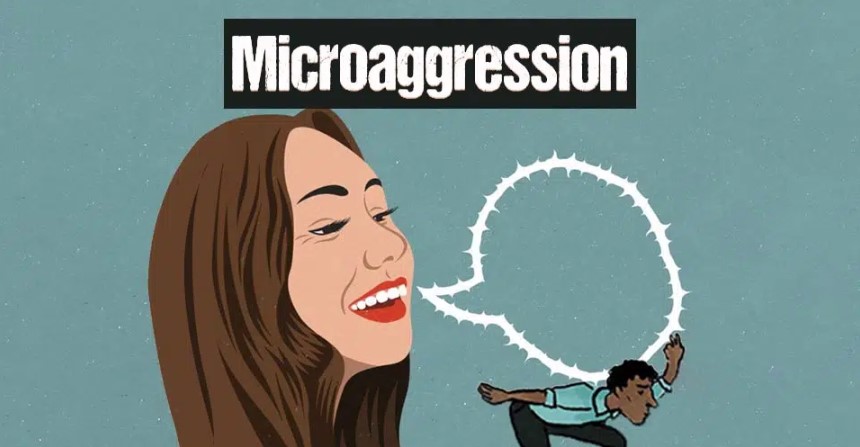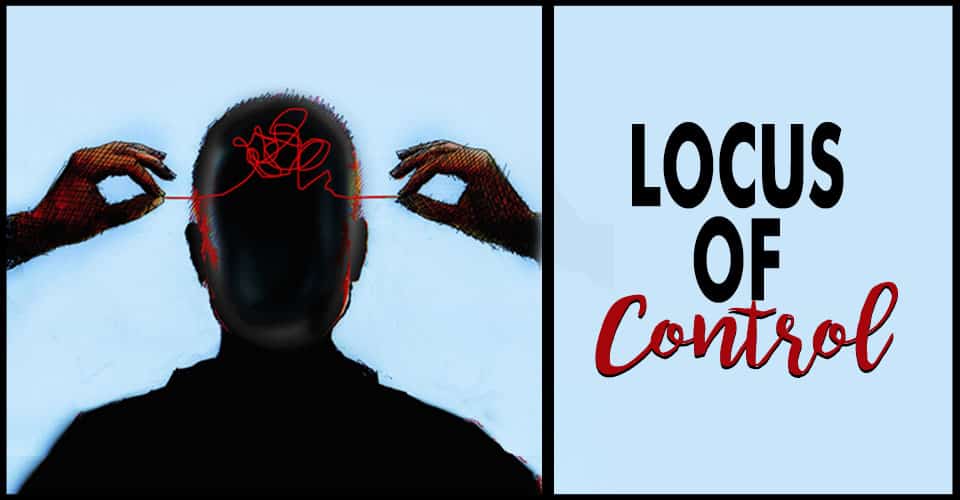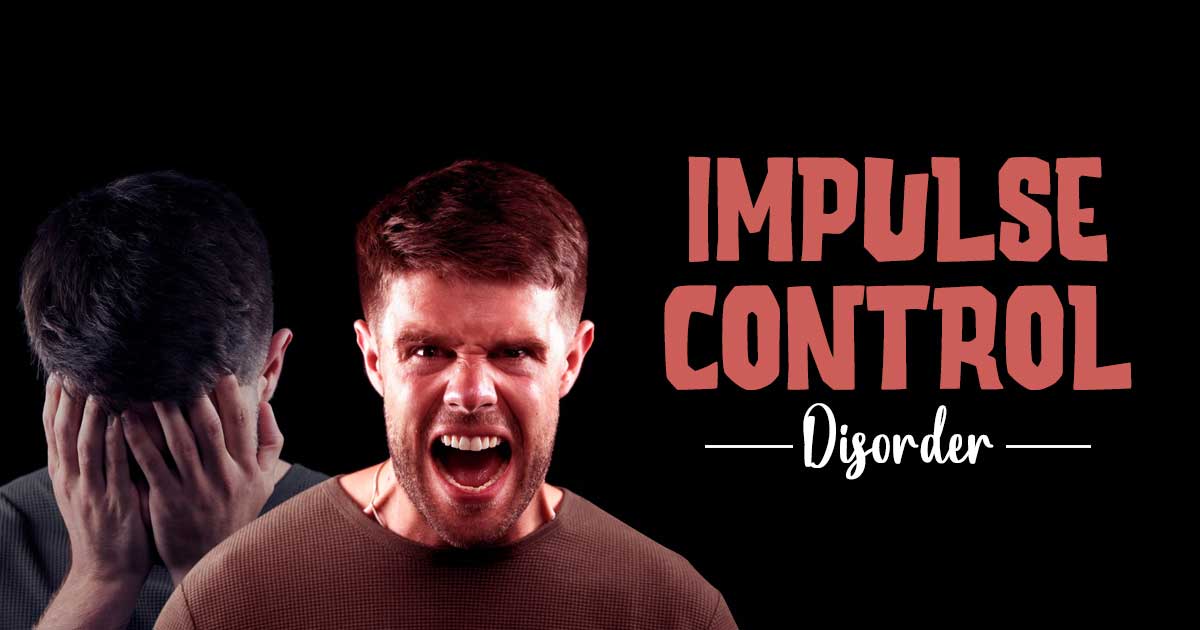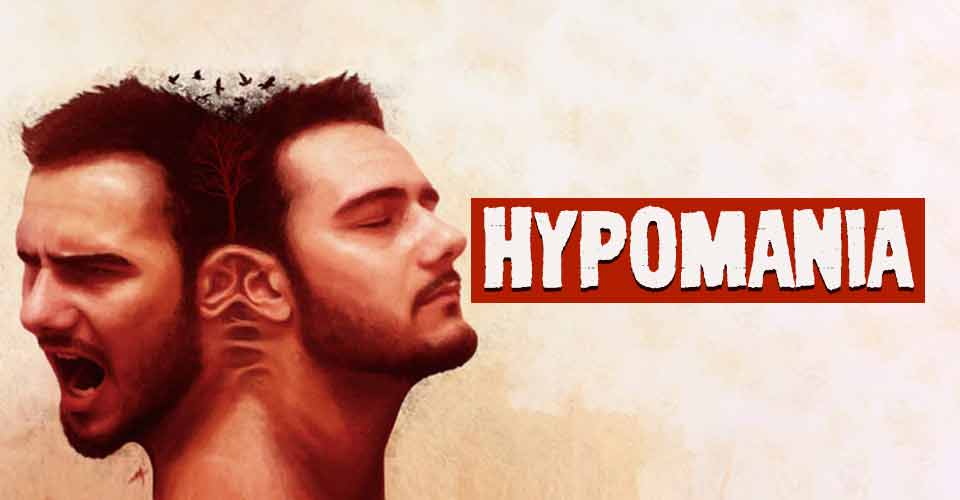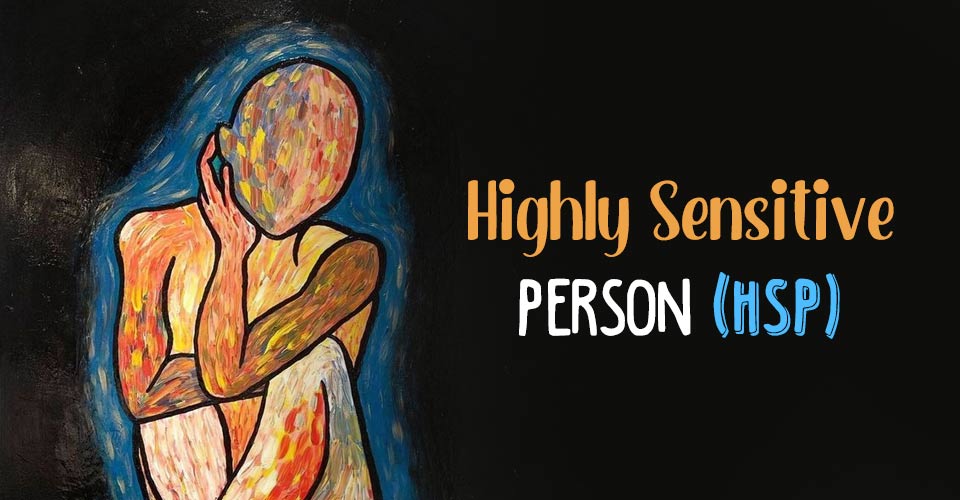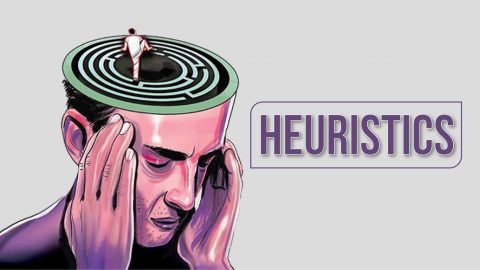Gut feeling refers to a sixth sense or hunch which allows us to gain and understand knowledge instinctively and immediately without relying on conscious reasoning. It is based on our inner sensing or unconscious cognition.
What Is Gut Feeling?
It is a reaction or feeling that provides immediate access to information stored in our subconscious mind without any deliberate thought or contemplation. It is a form of unconscious pattern recognition that enables us to make conscious decisions without logical rationale. Although mostly regarded as a spiritual ability, it is simply a process of the unconscious mind using past knowledge & experience.
Similar to intuition, gut feelings can appear in an instant without our conscious awareness of processing any information. It can also affect our decisions, relationships, behaviors and actions. A 2009 study 1 Stolper, E., van Bokhoven, M., Houben, P., Van Royen, P., van de Wiel, M., van der Weijden, T., & Jan Dinant, G. (2009). The diagnostic role of gut feelings in general practice. A focus group study of the concept and its determinants. BMC family practice, 10, 17. https://doi.org/10.1186/1471-2296-10-17 explains the feeling or sensation as “a non-specific sense of alarm, which may perhaps seem difficult to explain rationally, an almost visceral sense that something serious may be wrong.”
Gut feeling is believed to be an initial guess 2 Volz, K. G., & von Cramon, D. Y. (2006). What neuroscience can tell about intuitive processes in the context of perceptual discovery. Journal of cognitive neuroscience, 18(12), 2077–2087. https://doi.org/10.1162/jocn.2006.18.12.2077 based on constant pattern recognition, without any conscious attention, which is not specifically “describable” but impacts our thought and behavior. Contrary to popular belief, your gut feeling is not a magical ability. It generates as a result of the bi-directional communication between gut bacteria and the cognitive & emotional centers of our brain. This is known as the gut-brain axis 3 Carabotti, M., Scirocco, A., Maselli, M. A., & Severi, C. (2015). The gut-brain axis: interactions between enteric microbiota, central and enteric nervous systems. Annals of gastroenterology, 28(2), 203–209. .
However, experts in spiritualism believe that this experience can be difficult to define as an individual may suddenly get a sense of knowing what they do not know. But the experience can be different for each person as they feel a deep sensation in their core, their heart or all over their body. This feeling can often be confused with fear as it often warns us of oncoming danger which can even manifest as physical pain. In this aspect, gut feelings are different from intuition. “Relationships commonly reported between gut feelings and intuitive hunches may share a common, poorly understood, perceptive origin.” explains a 2005 study 4 Radin, D. I., & Schlitz, M. J. (2005). Gut feelings, intuition, and emotions: an exploratory study. Journal of alternative and complementary medicine (New York, N.Y.), 11(1), 85–91. https://doi.org/10.1089/acm.2005.11.85 .
Understanding Gut Feeling
Researchers have found out that intuition or gut feeling occurs throughout the right side of our brain and our oesophagus, as determined by a study 5 McCrea S. M. (2010). Intuition, insight, and the right hemisphere: Emergence of higher sociocognitive functions. Psychology research and behavior management, 3, 1–39. https://doi.org/10.2147/prbm.s7935 in 2010. The study states that “intuition is the ability to understand immediately without conscious reasoning and is sometimes explained as a ‘gut feeling’ about the rightness or wrongness of a person, place, situation, temporal episode or object.”
This feeling is personal and no one would be able to tell you whether your thoughts are right or not. More often than not, we have a constant underlying feeling of unease about a person or a situation. We do not understand where this feeling is coming from and there seems to be no logical explanation at hand. You suddenly feel calm and relaxed after making a decision and you are convinced that you have done the right thing.
Gut feelings have the ability to invoke a wide range of feelings and sensations in our bodies. According to a 2016 study 6 Zander, T., Öllinger, M., & Volz, K. G. (2016). Intuition and Insight: Two Processes That Build on Each Other or Fundamentally Differ?. Frontiers in psychology, 7, 1395. https://doi.org/10.3389/fpsyg.2016.01395 , it refers to identifying ideas and solutions without any specific representations or explanations. You can experience gut feelings as associated with having a deep anxiety. Research 7 Clapp, M., Aurora, N., Herrera, L., Bhatia, M., Wilen, E., & Wakefield, S. (2017). Gut microbiota’s effect on mental health: The gut-brain axis. Clinics and practice, 7(4), 987. https://doi.org/10.4081/cp.2017.987 shows that the gut-brain axis can lead to different mental health issues, like anxiety. Most people have described gut feelings or intuition as ‘a small voice talking to them from inside.’
Gut Feelings Vs Instinct
A lot of us tend to confuse gut feelings with our instincts. However, there is a vast difference between the two. Intuition is when you know or understand a specific situation or incident without having any kind of solid evidence or specific data. Analytical reasoning has no role to play here and you depend completely on your gut feeling.
However, instinct is not a feeling or a sensation. It is the way we humans are hardwired towards a specific activity or behavior. Our instincts have evolved from years of survival and we have automatic reactions to those specific situations. It is a biological tendency that we have acquired over the years. A good example of an instinct would be our human instinct for survival and reproduction.
Symptoms Of Gut Feeling

Gut feeling can invoke a variety of responses from your body
- A sudden flash of affirmation or clarity
- Muscle tightness
- Goosebumps
- Uneasy feelings like nausea 8 Turnbull, S., Lucas, P. J., Redmond, N. M., Christensen, H., Thornton, H., Cabral, C., Blair, P. S., Delaney, B. C., Thompson, M., Little, P., Peters, T. J., & Hay, A. D. (2018). What gives rise to clinician gut feeling, its influence on management decisions and its prognostic value for children with RTI in primary care: a prospective cohort study. BMC family practice, 19(1), 25. https://doi.org/10.1186/s12875-018-0716-7 or ‘butterflies in your stomach’
- A sudden sinking feel in your gut
- Sweaty palms and feet
- Recurring thoughts about a specific place or person
- Feelings of calmness, safety and peace after taking a decision
These feelings may come when you are least expecting it. They can be mild to extremely overwhelming at times. Sometimes these feelings become too strong and difficult for us to ignore.
Theories On Gut Feeling
There exist a lot of conflicting theories on gut feeling. Renowned psychologist, Sigmund Freud 9 Sibi, K. J. (2020, May). (PDF) Sigmund Freud and psychoanalytic theory. ResearchGate. https://www.researchgate.net/publication/342610778_SIGMUND_FREUD_AND_PSYCHOANALYTIC_THEORY believed that knowledge and skill could only be attained by careful observation and understanding of any subject. He totally disregarded intuition as a means of attaining knowledge. According to Freud 10 Sigmund Freud: His Life and Mind “knowledge could only be attained through the intellectual manipulation of carefully made observations and rejected any other means of acquiring knowledge such as intuition.” Carl Jung, however, had his own word for intuition – ‘irrational function’. He defined intuition as “perception via the unconscious’’. He also believed that we could never reach the height of our intuition and therefore should not rely on them.
However, psychologist Carl Rogers, had a different view on the phenomenon. He believed intuition had a lot to do with the natural healing process of our body and to be a core emotion of human psychology, and also endeavoured to uphold it as a main process of healing. A study concluded 11 Gerstenberg, T., & Tenenbaum, J. B. Intuitive theories. MIT – Massachusetts Institute of Technology. https://web.mit.edu/tger/www/papers/Intuitive%20Theories,%20Gerstenberg,%20Tenenbaum,%202017.pdf that inferences drawn from intuition can be ambiguous and limited. The intuitive psychology theory features concepts which are observable like actions and concepts which are not, like mental states.
Accuracy Of Gut Feelings
Although no study has ever shown that intuition might be accurate, our earliest intuition might actually be. However, gut feelings fuelled by our own emotions and thoughts may not be as accurate. A 2011 study 12 Dhaliwal G. (2011). Going with your gut. Journal of general internal medicine, 26(2), 107–109. https://doi.org/10.1007/s11606-010-1578-4 found out that intuitive decision making is related more to experiences, emotions and heuristics instead of evidence-driven reasoning. As a result, most experts do not provide much credence to this phenomenon. Our earliest intuitions, which have been existent from our primitive lives and have evolved with us, may actually be right.
A 2010 research found that “studies of decision-making in nursing, firefighting, engineering, and the military reveal that experts’ solutions to complex and challenging situations often arise immediately without conscious deliberation among options.” Experimental studies have indeed proven that intuition can actually be accurate in cases where analytical reasoning does not seem to work. The research made it clear that even in highly specialized roles, people can succeed by relying on their intuition.
How Gut Feeling Forms
Our gut feeling is an important body process which helps to tune our brain. It is believed to be a reflexive knowledge gathered by the various neurons in our body. These networks of neurons pick up previously learned behavior, beliefs and habits. Over time the neurons pick up signals from our outside world. When a similar situation arises, our neurons immediately start signalling us. A 2019 study 13 Van den Brink, N., Holbrechts, B., Brand, P., Stolper, E., & Van Royen, P. (2019). Role of intuitive knowledge in the diagnostic reasoning of hospital specialists: a focus group study. BMJ open, 9(1), e022724. https://doi.org/10.1136/bmjopen-2018-022724 found out that gut feelings have a lot to do with the diagnostic capabilities of doctors. Doctors who participated in the study said that it had an important role to play in their diagnosis of various ailments.
This sixth sense can be formed due to both biological and psychological changes in our body:
1. Biological process
Researchers 14 Ochoa-Repáraz, J., & Kasper, L. H. (2016). The Second Brain: Is the Gut Microbiota a Link Between Obesity and Central Nervous System Disorders?. Current obesity reports, 5(1), 51–64. https://doi.org/10.1007/s13679-016-0191-1 often consider the gut as “The Second Brain 15 Foster J. A. (2013). Gut feelings: bacteria and the brain. Cerebrum : the Dana forum on brain science, 2013, 9. . We have our cerebral brain which is located inside our skull. Then we have our enteric neural system which comprises roughly 100,000,000 neurons which are located beneath the sheath that line our gut. These neurons form a 25 feet long passage from our oesophagus to our lower intestines. The microbes in our gut also have an important role to play in sending signals to our brain. These microbes are important for creating chemicals which allow signals to be sent to our brain. The microbes and neurons pick up different signals and send them to our cerebral cortex.
The reactions in our gut may arise from the activities of those neurons located inside our gut. These can include butterflies arising in your stomach to a sudden intuition or knowledge about something which you did not have previously. This can occur because of the tiny neurons inside your gut, picking up and sending signals back. Studies 16 Mayer, E. A., Savidge, T., & Shulman, R. J. (2014). Brain-gut microbiome interactions and functional bowel disorders. Gastroenterology, 146(6), 1500–1512. https://doi.org/10.1053/j.gastro.2014.02.037 have also been conducted on how these gut feelings can arise in the first place.
According to a 2000 study 17 Mayer, E. A., Naliboff, B., & Munakata, J. (2000). The evolving neurobiology of gut feelings. Progress in brain research, 122, 195–206. https://doi.org/10.1016/s0079-6123(08)62139-1 , the bi-directional communication between the viscera or the internal organs within the chest or abdomen, and the limbic regions or brain structures regulating memory and emotions, influence the formation & expression of emotional responses. “The response of different viscera to distinct, emotion-specific patterns of autonomic output is fed back to the brain, in particular to the cingulofrontal convergence region,” the study adds. However, this process occurs primarily without conscious awareness and significantly influences emotional function and rational decision making.
2. Psychological process
There may be certain psychological and brain processes 18 Marder E. (2015). Understanding brains: details, intuition, and big data. PLoS biology, 13(5), e1002147. https://doi.org/10.1371/journal.pbio.1002147 associated with experiencing a gut feeling such as:
A. Brain processing
It is believed that our gut feeling or intuition is associated with brain processes. The brain continuously evaluates and compares new sensory information & experiences with available cumulative memories and knowledge to predict what we may encounter or experience in the present or near future. This is known as the predictive coding or predictive processing framework. A 2018 study 19 Keller, G. B., & Mrsic-Flogel, T. D. (2018). Predictive Processing: A Canonical Cortical Computation. Neuron, 100(2), 424–435. https://doi.org/10.1016/j.neuron.2018.10.003 explains that the predictive processing framework “postulates that responses in a subset of neurons, the prediction error neurons, signal a deviation, or a mismatch, between predicted and actual sensory input.”
It is believed to be one of the core functions of “neural computations with prediction errors” is managing brain processes & behavior. Predictive processing helps the brain to ensure that it is capable of coping with any challenges that may occur in the current situation as best as possible. When something beyond the prediction occurs, our brain restructures the cognitive models. However, this process of prediction happens subconsciously and hence is not sensed by our conscious awareness.
One 2016 study found that intuition or gut feelings are associated with insight as both processes are linked with non-analytical mental functioning. “Intuition has been understood as an experience-based and gradual process, whereas insight is regarded as a genuinely discontinuous phenomenon,” adds the study.
B. Experience-based predictions
A gut feeling can also be explained as predictions based on your past experiences. Some of your memories which you cannot fully recall or information of which you are not aware of can guide you in ways. A 2016 study 20 Lufityanto, G., Donkin, C., & Pearson, J. (2016, April 6). Measuring Intuition: Nonconscious Emotional Information Boosts Decision Accuracy and Confidence. The School of Psychology – UNSW. https://www2.psy.unsw.edu.au/users/cdonkin/publications/psci16.pdf tried to measure intuition. It found out that participants who were unknowingly looking at pictures designed to invoke positive or negative responses, their decisions got faster and they were quick to come to a conclusion, based on those pictures. Further research 21 Hams S. P. (2000). A gut feeling? Intuition and critical care nursing. Intensive & critical care nursing, 16(5), 310–318. https://doi.org/10.1054/iccn.2000.1500 shows that experienced individuals, especially nurses, often apply intuition in their daily work and this wisdom is based on their deeply grounded knowledge base. “Intuition is a gestalt experience of awareness, which is related to the unconscious mind and cannot be explained by logic,” states another 2016 study 22 Hassani, P., Abdi, A., Jalali, R., & Salari, N. (2016). The perception of intuition in clinical practice by Iranian critical care nurses: a phenomenological study. Psychology research and behavior management, 9, 31–39. https://doi.org/10.2147/PRBM.S101040 .
Types Of Gut Feelings

According to recent research 23 McCraty, R., & Zayas, M. (2014). Intuitive Intelligence, Self-regulation, and Lifting Consciousness. Global advances in health and medicine, 3(2), 56–65. https://doi.org/10.7453/gahmj.2014.013 , there are mainly three types of gut feeling which we can experience, namely
1. Implicit knowledge
This refers to the information our neurons picked up in the past in relation to previous experiences or situations that we had. We have no recollection of these past happenings and that information is stored in our subconscious mind only. A large number of pattern recognition models have been identified in our brain, which shows that there are several ways in which our brain processes and collects information.
2. Energetic sensitivity
This type of intuition corresponds with the ability of our nervous system to detect any environmental signals and respond to them. It has already been found out that activities in our nervous system are a direct result of our surrounding geological 24 Halberg, F., Cornélissen, G., McCraty, R., Czaplicki, J., & Al-Abdulgader, A. A. (November 1). Time structures (Chronomes) of the blood circulation, populations’ health, human affairs and space weather *. https://www.proquest.com/openview/5747f3f97d9b2914d6b41a1354386244/1?pq-origsite=gscholar&cbl=2034815 activities. Some people can feel any upcoming earthquakes or natural disasters about to take place. Another type of energetic sensitivity is when someone is looking at us, we immediately start to feel a sort of sensation in our minds.
3. Non-local intuition
This type is characterized by those feelings or sensations which cannot be explained. Even with our past knowledge, there seems to be no evidence for this type of intuition. A good example of this would be a mother sensing something occurring to her child. However, there are no conclusive studies which can accurately measure our non-local intuition.
How Gut Feelings Affect Decision-Making
A study 25 Lamond, D., & Thompson, C. (2000). Intuition and analysis in decision making and choice. Journal of nursing scholarship : an official publication of Sigma Theta Tau International Honor Society of Nursing, 32(4), 411–414. https://doi.org/10.1111/j.1547-5069.2000.00411.x conducted on nurses found out that gut feeling affects our decision-making capabilities in more ways than we thought. Although it was found that analytical approaches are most effective, intuition had a huge role to play in shaping decisions, especially in nurses. The study found that “nurses practicing at higher self-reported proficiency levels, scored higher on the intuition scale.” Higher levels of intuition were directly associated with more experience & higher levels of self-reported nursing proficiency. Intuition helps the brain to make memories from our past experiences and is stored as long-term memory. This information is available to us subconsciously when we try to make a decision or judgment. Here, relying on intuition can be broken down into two scenarios.
1. Information-based intuition
When you have garnered extensive knowledge & experience in a field, your intuition might be your subconscious information asking you to make the right choice. In this case, your mind has picked up knowledge over time and when faced in a similar situation, it tells you exactly what to do. Research 26 Vogel L. (2018). Gut feelings a strong influence on physician decisions. CMAJ : Canadian Medical Association journal = journal de l’Association medicale canadienne, 190(33), E998–E999. https://doi.org/10.1503/cmaj.109-5647 shows that “studies of physicians have repeatedly demonstrated that the single best predictor of diagnostic accuracy is the early (within minutes) consideration of the correct diagnosis”. This means that doctors who respond to their earliest gut feelings have a tendency of giving a correct diagnosis.
2. Physiological intuition
This type of intuition generates from past experiences and situations of which you were not subconsciously aware of. Just like we had discussed above how your brain tends to pick up information from your daily life, this intuition makes use of that information stored in your brain. For example, you might dislike a person with the way they talk. This can be because previously you had a bitter experience with a person who used to talk in the same way.
Here are some benefits and drawbacks of making decisions based on intuition:
A. Advantages intuitive decision making
There are various advantages of relying on your intuition.
i. The most studied advantage of intuition is that it allows you to take decisions in complex situations, quickly. Research showed that “instructing trainees to use intuition can lead to equal or greater accuracy than analytical reasoning.” Another study showed that relying on your intuition can be beneficial in situations where the problem is complex in nature.
ii. Your intuition can help you to identify your life’s purpose. Since our intuition gathers information from our subconscious mind, it can help to point us in the right direction and make our dreams into reality.
iii. People who depend on intuition for making decisions can be very broad-minded. This is because people who use logical reasoning to make decisions have a limited amount of knowledge.
iv. Your intuition can allow you to read the body language of people and understand what they are trying to say.
B. Disadvantages of intuitive decision making
Sometimes, listening to your intuition may not be the best decision to make.
i. Since intuition relies on our past experiences, it can sometimes be subjected to prejudices and bias. Hence, they can lead us to make poor decisions.
ii. People cannot explain the reason for their intuition. This proves to be a challenge in working environments and when working as a team
iii. People can form a habit of relying on intuitions. This can lead to poor results in fields where they have no knowledge or experience.
How Mental Illness Affects Gut Feeling
A study 27 Lucas G. (2018). Gut thinking: the gut microbiome and mental health beyond the head. Microbial ecology in health and disease, 29(2), 1548250. https://doi.org/10.1080/16512235.2018.1548250 has found that there exists a strong relationship between mental health issues and gut problems. “Gastrointestinal problems commonly coexist with autism spectrum disorder (ASD), schizophrenia, and Parkinson disease, explains a 2019 study 28 Butler, M. I., Mörkl, S., Sandhu, K. V., Cryan, J. F., & Dinan, T. G. (2019). The Gut Microbiome and Mental Health: What Should We Tell Our Patients?: Le microbiote Intestinal et la Santé Mentale : que Devrions-Nous dire à nos Patients?. Canadian journal of psychiatry. Revue canadienne de psychiatrie, 64(11), 747–760. https://doi.org/10.1177/0706743719874168 . Moreover, Irritable Bowel Syndrome is also related to the development of mood swings, depression and anxiety. Mental health issues due to poor gut health can affect our gut feelings.
A person suffering from mental health issues might find it hard to trust their gut. They may also interpret their gut feeling as another disorder or an added stress which they are facing. Mental disorders disrupt our brain chemistry and the way our neurons work. Research has found out that people who were subjected to stress and anxiety causing situations, reacted poorly to their intuition or showed impaired intuition-based decision-making.
Different mental health disorders impair our normal reasoning and decision-making process. Also, the different neurons in our brain have an impaired ability to function properly. This leads to poor receptance to outside signals. A person with mental disorders would also find it increasingly difficult to distinguish between gut feelings and anxiety or paranoia. A study 29 Remmers, C., & Michalak, J. (2016). Losing Your Gut Feelings. Intuition in Depression. Frontiers in psychology, 7, 1291. https://doi.org/10.3389/fpsyg.2016.01291 revealed that “in contrast to healthy individuals who take most daily life decisions intuitively depressed individuals seem to have difficulties to come to fast and adaptive decisions.”
Intuition Vs Anxiety And Paranoia
Gut feelings can bring up the same physical sensations which occur in our body as anxiety or paranoia. Thus, it can be hard to tell them apart. However, gut feelings, paranoia and anxiety are completely different states.
1. Gut feelings and anxiety
The sense of knowing something comes up in specific situations with specific persons and makes you take an action or a concrete decision, thus corresponding to your gut feeling. Anxiety, however, often focuses on the future and is not defined well. In cases of anxiety 30 Bystritsky, A., Khalsa, S. S., Cameron, M. E., & Schiffman, J. (2013). Current diagnosis and treatment of anxiety disorders. P & T : a peer-reviewed journal for formulary management, 38(1), 30–57. , you might start worrying about all matters of concern.
Read More About Generalized Anxiety Disorder Here
2. Gut feelings and paranoia
Paranoia 31 Freeman, D., & Garety, P. A. (2000). Comments on the content of persecutory delusions: does the definition need clarification?. The British journal of clinical psychology, 39(4), 407–414. https://doi.org/10.1348/014466500163400 can be defined as a persecutory belief that harm may occur and that other individuals, including loved ones, intend to harm the individual. You might have a continuous worrying suspicion about people or their actions. You can be convinced that someone is trying to cause you harm. However, you have no reason to support your claims. You may not recognise your gut feeling right away, but the longer you think about it, the more proof you get of your intuition.
Read More About Paranoia Here
How To Identify To Your Gut Feeling

Intuition is the communication between the subconscious and conscious mind. Although it can often be hard at times to identify your gut feelings, overthinking can adversely affect the messages we receive from our subconsciousness. This is why it is crucial to take a pause and breathe deeply to clear our mind and listen to what our intuition is trying to say. Here are few signs your gut feelings are talking to you:
- Feeling uneasy or uncomfortable with a decision or situation
- Repeated ideas or thoughts about certain topics
- Having a sense of clarity when pausing or slowing down
- Experiencing vivid and lucid dreams
- Feeling content and confident about a decision that is not rational
- Feeling inspired and motivated about a specific idea or thing
- Having a sense of calm and peace in the stomach or chest
- Feeling physically sick or ill
When To Trust Your Intuition
There are situations where you can trust your gut feeling confidently, such as:
1. When You Don’t Trust Someone
Our brain’s deeply evolved animal instincts have taught us to judge characters, using different types of body language. You might not be consciously feeling it, but your subconscious mind may have already made a note of how it feels about that person. Thus, if you have a gut feeling that a person is lying or trying to deceive you, chances are, it is right 32 Roberts, A. H., Greenwood, D., Stanley, M., Humberstone, C., Iredale, F., & Raynor, A. (2020, September 23). Understanding the “gut instinct” of expert coaches during talent identification. Taylor & Francis. https://www.tandfonline.com/doi/full/10.1080/02640414.2020.1823083 .
2. When something is outside your moral constitution
In life, we often face situations where we have to choose between the right and the wrong. In such scenarios, it is better to listen to our conscience which guides us in doing the right thing. In situations where you know something is bad, you have to trust your gut 33 Soosalu, G., Henwood, S., & Deo, A. (2019, March 18). Head, heart, and gut in decision making: Development of a multiple brain preference questionnaire – Grant Soosalu, Suzanne Henwood, Arun deo, 2019. SAGE Journals. https://journals.sagepub.com/doi/full/10.1177/2158244019837439 and at the same time listen to conscience.
3. When you have previous knowledge about something
Having experience in a certain situation or with a person can allow you to trust your gut feelings more. Having previous knowledge and information about something can affirm your views 34 Radin, D., & Schlitz, M. (2005, March). (PDF) Gut feelings, intuition, and emotions: An exploratory study. ResearchGate. https://www.researchgate.net/publication/7984582_Gut_Feelings_Intuition_and_Emotions_An_Exploratory_Study on trusting your gut feel. Thus, in situations where you have enough experience and facts, you can be absolutely sure to trust your gut.
How To Strengthen Your Gut Feeling

There are ways that can enable you to cultivate your intuition and make the most of your gut feelings to make better, instinctive decisions. Here is a few ways to get started:
- Practice mindfulness meditation 35 Zeidan, F., Martucci, K. T., Kraft, R. A., McHaffie, J. G., & Coghill, R. C. (2014). Neural correlates of mindfulness meditation-related anxiety relief. Social cognitive and affective neuroscience, 9(6), 751–759. https://doi.org/10.1093/scan/nst041 as it can help you clear your mind.
- Pay attention to your bodily sensations and what they are trying to convey.
- Practice deep breathing on a regular basis.
- Engage in creative activities, like painting or writing as this helps to calm the cognitive mind and empowers intuition.
- Try to be attentive to your dreams as our subconscious mind often sends signals in dreams.
- Turn off all your gadgets & devices and spend time in nature to fire up your gut feeling.
- Let go of any preconceived notions about how absurd sixth sense or gut feelings can be and simply focus on what you feel.
- Try to be more empathetic and compassionate around people as it will enable you to sense more and think less.
- Think about negative past experiences and how your intuition may have guided you then.
- Take a break from your daily routine and engage in new experiences.
- Practice self-love and engage in self-care practices and have faith in yourself.
Read More About How To Strengthen Your Gut Feeling Here
Trust Your Gut Feeling
Gut feelings can get better with time and practice. So, learn to start giving your gut feeling the consideration it deserves. You can also try practising meditation as this helps you form a stronger mind-body connection. Your emotions exist there for a reason. If you are having trouble, struggling to identify your gut feelings and have a hard time distinguishing them from thoughts of anxiety and paranoia, a therapist can assist you in cultivating abilities, to differentiate between them.
Gut Feelings At A Glance
- Gut feeling or sixth sense allows us to gain & understand knowledge instinctively & immediately without relying on conscious reasoning.
- It is a form of unconscious pattern recognition that enables us to make conscious decisions without logical rationale.
- This feeling is personal and no one would be able to tell you whether your thoughts are right or not.
- You can experience gut feelings as associated with having a deep anxiety.
- Gut feelings can bring up the same physical sensations which occur in our body as anxiety or paranoia.
- Gut feelings can get better with time and practice.

